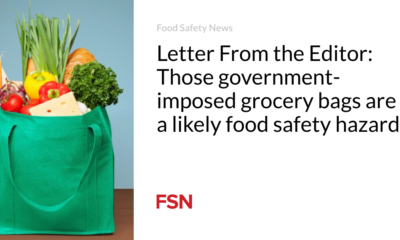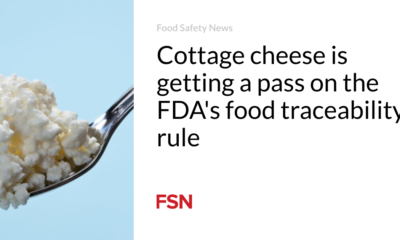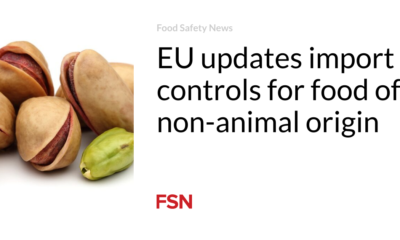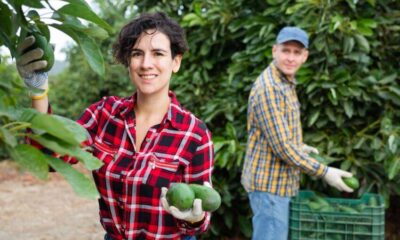Food
Think of food safety not just as a job, but as a mission for everyone
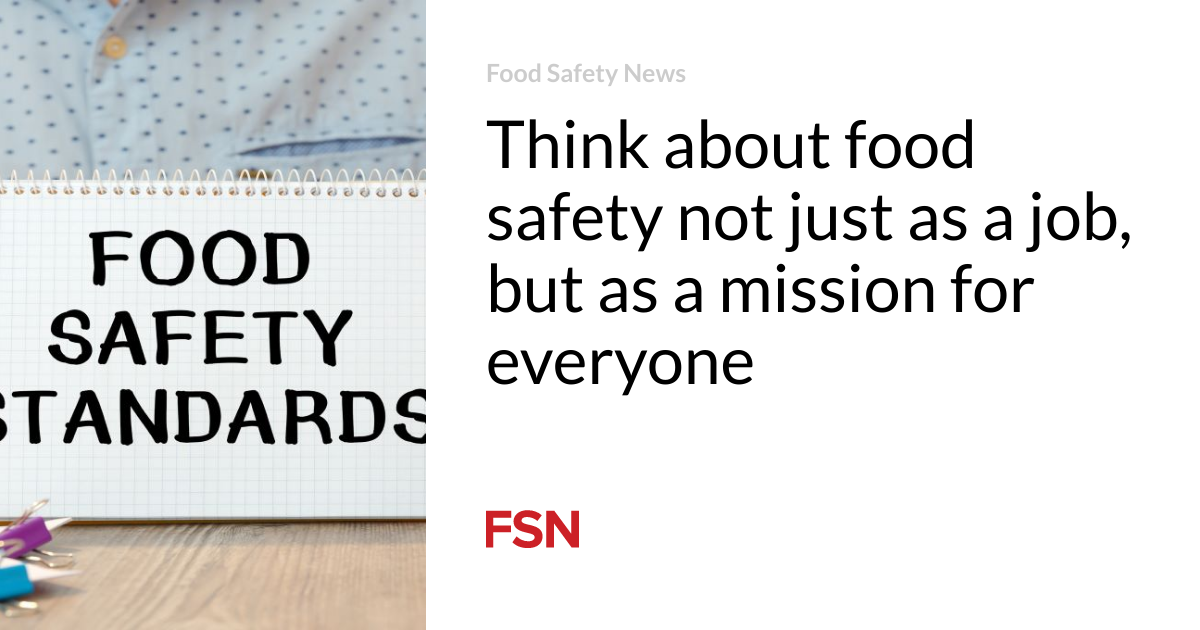
Co-author Tyler Williams, Director of Scientific Services, PathoSans
– OPINION –
Each of the authors of this article fulfills a specific role for our respective organizations. But we are united by the belief in the importance of food safety as a critical public and personal health issue that affects everyone. It’s a problem that, without warning, can make otherwise healthy people sick or even die – some of them young children. But despite the increasing risks in the increasingly complex global food industry, it is a problem that is still too often rooted in a culture of ignorance and pass-the-buck thinking.
Food safety is a major global health problem. In the US alone, we claim to have one of the safest food supplies in the world. Yet every year according to the USDA48 million people become ill, 128,000 are hospitalized and 3,000 die from foodborne illness. One of the authors of this article personally experienced the death of a child due to an E. coli outbreak. So we know how real the risk is. We believe this needs to be addressed by making it more than just ‘someone’s job’; it must belong to everyone mission.
Education and public policy
When a serious food safety incident occurs, it is often publicized by local and national media, and sometimes goes viral on social media. But often people get sick in ways that don’t attract attention. Sometimes they are not even fully aware of what caused them to become ill; Foodborne illnesses can be mistaken for flu or another undiagnosed illness.
Unlike many other common consumer products, food – despite being consumed every day by every person – is often not adequately educated for consumers and workers. For example, a plain and simple ladder will have safety warnings printed on the side. But have you ever seen a safety warning in a package of ground beef about cooking it properly? Is the public aware that restaurants sometimes fail to comply with their municipality’s food inspections, but are still allowed to remain open? Do children receive food safety education as part of their curriculum? Usually the answer to all these questions is no.
The global food sector is a complex business, with separate industries for growing, processing, production and consumption. It is therefore a huge task to tackle food safety at every conceivable contact point. The task is beginning to be addressed by efforts like the Global Food Safety Initiativeas well as many national organizations in the United States and other countries.
Over the past thirty years we have learned enough about food safety to raise awareness about the problem. For example, many cleaning products today carry labels that include information such as “effective in killing E. coli bacteria,” which can be fatal. Many new food safety policies have been implemented at the federal, state, and local levels. Educational institutions such as Northeastern University have expanded their curricula to include food safety and regulatory policy education. Advising companies, such as Detwiler advisory group have been created, aimed at helping food companies improve their safety practices. We have worked with public policy makers to guide them in improving legal standards for safe food practices. And we’ve also been working to raise awareness about our “food culture‘ as something that affects everyone’s health.
Better cleaning and sanitation processes
Cleaning and sanitation can play their own critical role in controlling the spread of foodborne pathogens. PathoSans, a company whose philosophy is ‘The Clean that Says You Care’, has long been committed to the mission of effective and safe cleaning without the use of chemicals that can harm people, animals or the environment. In the food industry, our solutions are found in food applications as diverse as restaurants and bakeries, fish processing plants, chicken hatcheries and controlled environment agricultural facilities that use greenhouses for the large-scale production of fruits and vegetables. Our applications can be found in the United States, China, Japan, New Zealand and Australia.
PathoSans successful approach to cleaning and sanitizing includes our ECAS (electrochemically activated solution) technology. Using only salt, water and electricity, two effective compounds are created: PathoClean and PathoCide, which together do their job – first clean and then disinfect – without the disadvantages of many alternative solutions, such as harmful, caustic chemicals, noxious odors or additives that can cause allergies. Moreover, they are safer for the environment. This is a crucial consideration; Since growing food is part of our environment, why would we want to harm that environment with chemicals that kill germs but can also harm plants and animals?
Understanding the science of food safety
One of the keys to using the ECAS approach to combat foodborne pathogens is to look closely at the science behind it. That is why PathoSans has conducted laboratory studies and published the results in scientific journals. One such study, The science of food safety, was published in Australia by the Royal Society of Chemistry. Another, Finding better ways to protect fruits and vegetables after harvest, was also published by the same organization. These studies are part of PathoSans’ ongoing commitment to developing better approaches to food safety. This commitment is also reflected in our close collaboration with food industry customers to solve additional challenges.
The true meaning of a mission
Better food safety and healthier, more effective cleaning methods… these are two goals worth turning into a mission, rather than just a job. Through our collective efforts in food safety education, policy improvements and cleaning technology, we are fully committed to our mission.
Part of that mission is to not only promise people better health, but also to deliver on those promises. Food health is one of the most crucial human needs. Let’s work together to get it right.
About the co-author: Tyler Williams oversees all product development, quality assurance and regulatory management surrounding on-site electrochemical generators (OSGs) and product chemistry at PathoSans. Williams holds a bachelor’s degree in chemistry from Purdue University and is a founding member of the Hypochlorous Acid (HOCl) Consortium, charged with working with the EPA to promote awareness and acceptance of HOCl.
(To sign up for a free subscription to Food Safety News,Click here)



